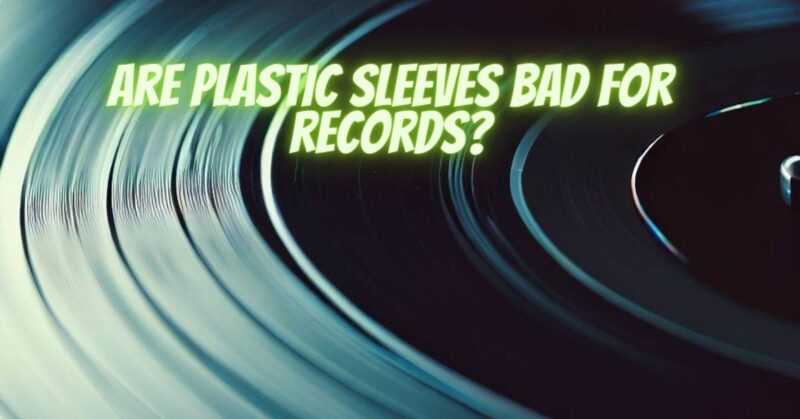Vinyl records hold a timeless charm, offering a tangible and authentic way to experience music. Protecting these cherished artifacts is of paramount importance to collectors, leading to discussions about the use of plastic sleeves. The question often arises: Are plastic sleeves bad for records? In this article, we delve into the nuances of this topic to provide a well-rounded understanding of the effects of plastic sleeves on vinyl records.
Different Types of Plastic Sleeves
Polyethylene and Polypropylene: Plastic sleeves used for vinyl records are primarily made from two materials: polyethylene and polypropylene. Each has distinct characteristics that can impact the condition of vinyl records.
Polyethylene Sleeves: Polyethylene sleeves are transparent and cost-effective but are prone to static buildup. This static can attract dust and particles, potentially affecting sound quality and necessitating more frequent cleaning.
Polypropylene Sleeves: Polypropylene sleeves are widely favored by vinyl enthusiasts due to their resistance to static buildup. They offer a better balance between clarity and protection, making them a preferred option for safeguarding vinyl records.
Separating Myths from Facts
Static Electricity: One of the main concerns is static electricity generated by polyethylene sleeves. While it can attract dust and particles, it doesn’t directly damage the vinyl record. Regular cleaning can address this issue.
Moisture Trapping: The notion that plastic sleeves trap moisture, leading to mold growth, holds some truth. However, this risk can be mitigated by choosing high-quality sleeves and ensuring proper ventilation.
Chemical Reactions: While plastic materials can react with vinyl records over an extended period, high-quality polypropylene sleeves minimize the likelihood of these reactions.
Sleeve Fit and Handling: Ill-fitting sleeves or careless handling during the insertion and removal of records can lead to scuffs or scratches on the vinyl’s surface or the record jacket.
Balancing Protection and Preservation
Quality Matters: Investing in high-quality polypropylene sleeves reduces the risks associated with static buildup and moisture trapping. These sleeves strike a balance between protection and clarity.
Proper Handling: Careful handling during the insertion and removal of records is essential to prevent scuffs, scratches, and damage. Proper handling can mitigate potential issues associated with plastic sleeves.
Regular Inspection: Frequent inspections of your records can help identify any signs of moisture, mold, or deterioration. Proactive measures can prevent potential damage before it becomes significant.
Plastic sleeves, when chosen wisely and used with care, can provide valuable protection to vinyl records. The critical factors are the quality of the plastic material and proper handling. High-quality polypropylene sleeves, in particular, offer an effective compromise between protection and clarity, addressing concerns about static buildup and moisture trapping.
Ultimately, plastic sleeves are not inherently bad for records. They can be beneficial when used thoughtfully, in conjunction with proper record handling practices. By opting for quality sleeves and paying attention to details, vinyl collectors can enjoy the benefits of protective sleeves while preserving the cherished sounds of their vinyl records for generations to come.


